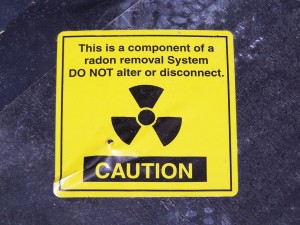Getting a home with radon. What you ought to recognize.
Radiation Defense
Is radon really bad for you?
Breathing radon over time increases your risk of lung cancer. Radon is the second leading cause of lung cancer in the United States. Nationally, the EPA estimates that about 21,000 people die each year from radon-related lung cancer. Only smoking causes more lung cancer deaths.
The remaining 46 states appeared to have some staff and tasks dedicated to radon control in the state government, mostly state health and wellness divisions. Dr. Jerry M. Cuttler, a radiation professional and advisor to the American Council on Scientific Research as well as Health and wellness, has actually co-authored a paper entitled "Threshold for Radon-Induced Lung Cancer From Inhaled Plutonium Data," together with Charles L. Sanders. Dr. Cuttler explains that determined radon degrees as well as cancer results document, as a matter of fact, a considerable reduction below the natural occurrence of lung cancer. These monitorings contradict the forecasts made using the LNT dose-response model.
Only regarding 20% of all institutions nationwide have actually done screening, although the EPA suggests that every institution be tested. These numbers are probably low enough to guarantee defense of the majority of kids from raised radon exposures. For exposure standards to be efficient, they should be established for those most at risk. The primary route of exposure to radon and also its progeny is inhalation.
Is radon mitigation really necessary?

When radon gas enters the body, it exposes the lungs to small amounts of radiation. In small quantities, experts say this is harmless. However, in persistent exposures or larger quantities, radon can damage the cells of the lining of the lungs, increasing a person's chance of developing lung cancer.
EPA forbade ground degree discharge of radon primarily due to the capacity for re-entrainment of the gas right into your home and also as a result of the opportunity of children being revealed to high radon levels. The focus of radon gas at the discharge factor can be 10s of thousands of picocuries per min.
- Lung cancer cells danger rises 16% per 2.7 pCi/L increase in radon direct exposure.
- Radon gas is a naturally-occurring by-product of the radioactive degeneration of Uranium in the soil.
- Depending upon your geographic area, the radon levels of the air you breathe beyond your residence may be as high as 0.75 pCi/L.
- The US EPA has put it simply, specifying, "Any kind of radon direct exposure has some danger of creating lung cancer.
How do you eliminate radon?
Possible symptoms include shortness of breath (difficulty breathing), a new or worsening cough, pain or tightness in the chest, hoarseness, or trouble swallowing. If you smoke and you know you've been exposed to high levels of radon, it's very important to quit smoking.
People who smoke or utilized to smoke have an even better possibility of developing lung cancer if they are subjected to radon. When you consider air pollution, you might just consider what you're revealed to outdoors. But interior air top quality in your home matters, also, as well as it can be majorly affected by the visibility of a contaminated gas called radon. This gas can accumulate to harmful levels as well as raise your risk for establishing lung cancer cells-- also if you don't smoke, according to the American Lung Association.
Health and wellness
What are the symptoms of radon in your home?
If a person has been exposed to radon, 75 percent of the radon progeny in https://paxtonswdp625.skyrock.com/3335198036-Getting-Or-Marketing-Test-For-Radon.html lungs will become "harmless" lead particles after 44 years. When an alpha particle damages a cell to make it cancerous, the onset of lung cancer takes a minimum of 5 years but most often 15 to 25 years, and even longer.
The research paid close attention to the accomplice's levels of smoking, job-related direct exposure to carcinogens and education attainment. However, unlike most of the residential radon researches, the study was not population-based.
How long does it take for radon to cause cancer?
Fact: You will reduce your risk of lung cancer when you reduce radon levels, even if you've lived with an elevated radon level for a long time. Keep in mind that radon levels below 4 pCi/L still pose some risk and that radon levels can be reduced to 2 pCi/L or below in most homes.